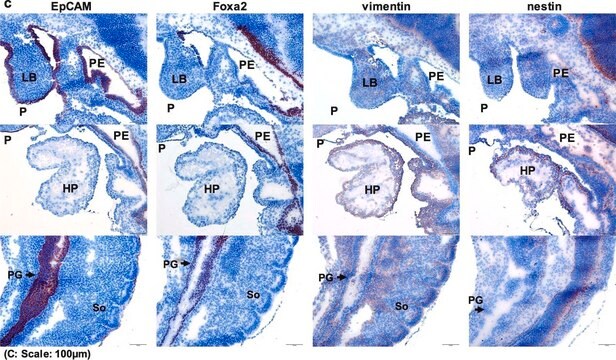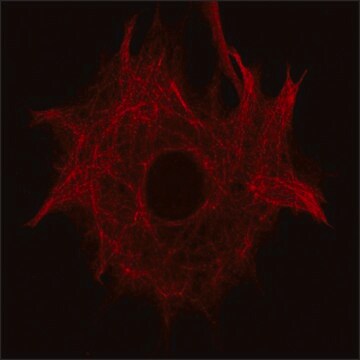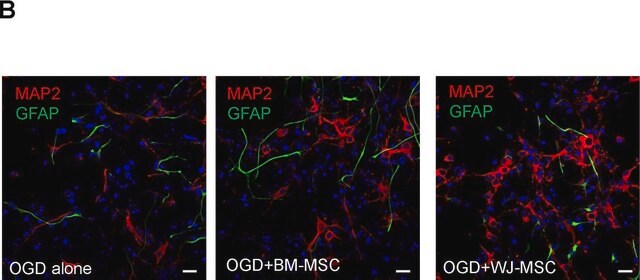ABD69
Anti-Nestin, Human Antibody
serum, from rabbit
Synonym(s):
Nestin
About This Item
Recommended Products
biological source
rabbit
Quality Level
antibody form
serum
antibody product type
primary antibodies
clone
polyclonal
species reactivity
human
should not react with
rat, mouse
technique(s)
immunocytochemistry: suitable
immunohistochemistry: suitable
western blot: suitable
NCBI accession no.
UniProt accession no.
shipped in
wet ice
target post-translational modification
unmodified
Gene Information
human ... NES(10763)
General description
Specificity
Immunogen
Application
Immunocytochemsitry Analysis: A 1:500 dilution of this antibody detected Nestin in human WI38 cells.
Evaluated by Immunohistochemistry in human glioblastoma tissue.
Immunocytochemsitry Analysis: A 1:2,000 dilution of this antibody detected Nestin in human glioblastoma tissue.
Evaluated by Western Blot in human U251 glioblastoma cells. Western Blot Analysis: A 1:25,000 dilution of this antibody has been shown to detected Nestin in human U251 glioblastoma cells.
Quality
Target description
Linkage
Analysis Note
U251 glioblastoma cells.
Disclaimer
Not finding the right product?
Try our Product Selector Tool.
recommended
Storage Class Code
10 - Combustible liquids
WGK
WGK 1
Certificates of Analysis (COA)
Search for Certificates of Analysis (COA) by entering the products Lot/Batch Number. Lot and Batch Numbers can be found on a product’s label following the words ‘Lot’ or ‘Batch’.
Already Own This Product?
Find documentation for the products that you have recently purchased in the Document Library.
Protocols
Step-by-step culture protocols for neural stem cell culture including NSC isolation, expansion, differentiation and characterization.
Our team of scientists has experience in all areas of research including Life Science, Material Science, Chemical Synthesis, Chromatography, Analytical and many others.
Contact Technical Service








